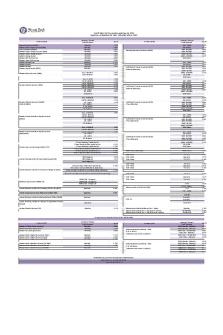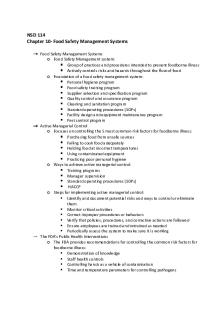Building a New Nation - Lecture notes 10 PDF

| Title | Building a New Nation - Lecture notes 10 |
|---|---|
| Author | Justin Martin |
| Course | Survey of American History |
| Institution | Oklahoma State University |
| Pages | 2 |
| File Size | 29.5 KB |
| File Type | |
| Total Downloads | 33 |
| Total Views | 148 |
Summary
Dr.Karibo Lecture...
Description
Building a New Nation Liberty for Whom? -Treaty of Paris of 1783 -Native tribes: lost “middle ground” -Slavery: most obvious challenge to new ideals -Women: participated in protest and war: saw little formal gains -“Republican Motherhood” Land struggles post-war. Went much further west than expected. Since there was no more British control, Americans were allowed to go further west. Every state north of Delaware abolishes slavery. Women believed to have to raise sons that became good citizens. Only one state gave women right to vote initially, New Jersey, eventually taken away. Turmoil of the 1780s -Economic crisis: uprisings -Philadelphia Convention (1787): 55 delegates. -Elites -Expanded national authority -2 key limits: separation of powers; checks and balances. -Key dilemma: slavery -Three Fifths Clause: undermined “liberty”; cause long term divisions -Electoral College. Since the Articles of Confederation was weak, the federal government could not directly tax the states and basically had to ask. This resulted in a raising of state taxes which led to uprisings and riots by angry citizens (Shay’s rebellion). Closed convention so that they could debate without regard of constituents and such, they wanted to have an open dialogue without worries. The convention was focused on what to do about a central federal government and whether or not to go along with the articles or to create something entirely new. Constitution arose “supreme law of the land”. Separation of powers. Anti-Federalists -More representatives -Weak central gov, stronger state gov -Mostly small farmers shopkeepers laborers (middle class) -Believed in democracy and giving all people a voice Federalists -Few representatives -Strong central gov, weak state gov -Mostly property owners (rich) -Believed the educated should make the decisions; the common man can’t be trusted to make a smart choice The Federalist Administrations -Washington (1789-1797); Adams (1797-1801) -Powerful cabinets: divided politics -Limited political participation: expanding federal power.
-1789: Supreme Court -Hamilton’s economic policies: Bank of U.S.; protectionist policies. -Whiskey Rebellion (July 1794) -Division: support French or British? -Alien and Sedition Acts (1798)...
Similar Free PDFs

Building Science Lecture Notes
- 18 Pages

Book building - Lecture notes 2
- 4 Pages

Lecture notes, lecture 10
- 5 Pages

New keynesian - Lecture notes 12
- 20 Pages

New PR - Lecture notes 3
- 1 Pages

241lecture 10 - Lecture notes 10
- 3 Pages

Chapter 10 - Lecture notes 10
- 17 Pages

Lab 10 - Lecture notes 10
- 3 Pages

A#10 HAJ - Lecture notes 1
- 3 Pages

Lesson 10 - Lecture notes 10
- 24 Pages

Chapter 10 - Lecture notes 10
- 9 Pages
Popular Institutions
- Tinajero National High School - Annex
- Politeknik Caltex Riau
- Yokohama City University
- SGT University
- University of Al-Qadisiyah
- Divine Word College of Vigan
- Techniek College Rotterdam
- Universidade de Santiago
- Universiti Teknologi MARA Cawangan Johor Kampus Pasir Gudang
- Poltekkes Kemenkes Yogyakarta
- Baguio City National High School
- Colegio san marcos
- preparatoria uno
- Centro de Bachillerato Tecnológico Industrial y de Servicios No. 107
- Dalian Maritime University
- Quang Trung Secondary School
- Colegio Tecnológico en Informática
- Corporación Regional de Educación Superior
- Grupo CEDVA
- Dar Al Uloom University
- Centro de Estudios Preuniversitarios de la Universidad Nacional de Ingeniería
- 上智大学
- Aakash International School, Nuna Majara
- San Felipe Neri Catholic School
- Kang Chiao International School - New Taipei City
- Misamis Occidental National High School
- Institución Educativa Escuela Normal Juan Ladrilleros
- Kolehiyo ng Pantukan
- Batanes State College
- Instituto Continental
- Sekolah Menengah Kejuruan Kesehatan Kaltara (Tarakan)
- Colegio de La Inmaculada Concepcion - Cebu




